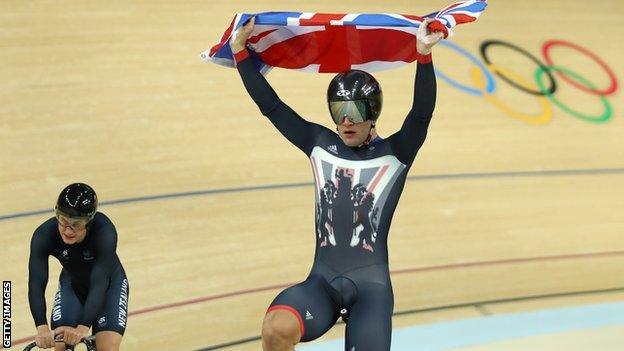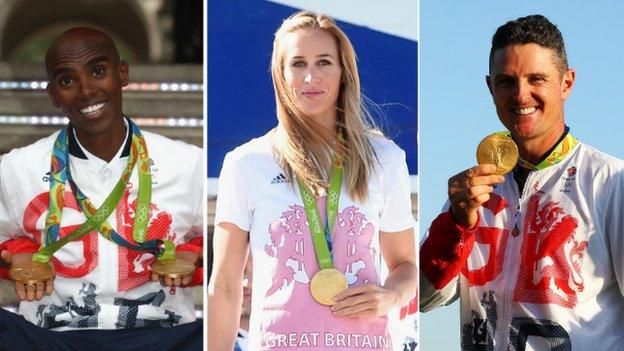Fancy Bears post Callum Skinner's stolen medical files online
- Published

Callum Skinner helped GB win gold in the Rio Olympics team sprint
Olympic gold medallist Callum Skinner is the first Scottish athlete to have his stolen medical files made public by hackers.
The cyclist was among 26 individuals whose records were posted on the Fancy Bears website on Monday.
The document suggests that Skinner was granted a therapeutic use exemption (TUE) for the banned substance prednisolone in 2014.
There is no suggestion Skinner has been involved in any wrongdoing.
The 24-year-old won gold in the team sprint at the Rio Olympics - along with Jason Kenny and Philip Hindes - as well as taking silver in the individual sprint when he was beaten in the final by team-mate Kenny.
The document posted on the Fancy Bears website suggests that Skinner, who has suffered from asthma since childhood, was allowed a TUE for prednisolone - an anti-inflammatory drug that is regularly prescribed for asthma - for a one-off, five-day oral course of treatment in November 2014, while he was competing at the Track World Cup in London.
The TUE was authorised by the UK Anti-doping Agency and recognised by the International Cycling Union.

Callum Skinner won a silver medal in the individual sprint in Brazil
Ingestion of prednisolone - a glucocorticosteroid - is prohibited during competition, although local, topical use or use outwith competition is not banned.
According to the hacked documents, golfer Justin Rose, who won gold at the Rio Games, also had authorisation for daily doses of prednisolone between 20 May and 20 June this year.
Last week, Rio 2016 gold medallists Sir Bradley Wiggins, Laura Trott and Nicola Adams, and three-time Tour de France winner Chris Froome, were among those named as having TUEs.
Fellow Olympic gold medallists Mo Farah and Helen Glover were among those named in the latest batch of hacked documents, which were stolen from a World Anti-Doping Agency (Wada) database.
A spokesman for British Cycling said: "We're proud of our strong anti-doping culture at British Cycling.
"As the national governing body for the sport in Britain and a supporter of the WADA code, we condemn the publication of any individual's medical information without their permission."
- Published20 September 2016

- Published19 September 2016

- Published19 September 2016
